Are you prepared for power outages? In this article, I’m going to show you how to choose the best home generator for power outages.
During unexpected power outages from inclement weather, such as winter storms and natural disasters, a reliable home generator is crucial.
This comprehensive article explores the top-rated options available, highlighting their features, performance, and affordability.
Whether you need to keep your lights on, run your appliances, or power an entire house, a good generator provides peace of mind during power outages.
Keep reading to learn about the different types of generators and key factors to consider while shopping. And, discover the best generator for home use on the market today.
The Best Portable Inverter Generator
Top for Small Homes
The Top for Large Homes
Best Solar Generator
Top Budget Generator
Best Home Generators for Power Outages: Our Top Picks
In times of power outages, having a reliable home generator is crucial. This comprehensive article explores the top-rated options available, highlighting their features, performance, and affordability. Stay prepared and keep your home powered during emergencies with these exceptional backup power solutions.

DuroMax XP13000HX Dual Fuel Portable Generator - 13000 Watt Gas or Propane Powered - Electric Start w/ CO Alert, 50 State Approved
Best Overall Portable Generator
The DuroMax XP13000HX is a versatile, high-power generator that delivers a whopping 12,000 watts, making it a great option for handling a heavy load during power outages. It runs on either gasoline or propane, offering flexibility in terms of fuel source.
This powerhouse is engineered with a 500cc OHV DuroMax Engine, providing a robust 13000 watts of power. The dual fuel technology allows you to operate your portable generator on either standard gasoline or cleaner-burning propane. Featuring an electric start for hassle-free operation and a heavy-duty metal frame for durability. The fully-loaded power panel includes multiple outlets for maximum compatibility in your applications such as two 120V household GFCI outlets, and one 240V 30A twist lock outlet.
Designed with the MX2 power boost, the XP13000HX can handle heavy loads from lights, refrigerators, home conditioners, and high amperage power tools. Also, this generator is EPA and CARB approved for use in all 50 states.
With its advanced sound dampening, it operates at a comfortable noise level suitable for home, camping, and RV use. Whether it's for home backup or the next camping trip, the DuroMax XP13000HX Dual Fuel Portable Generator is a versatile and reliable power source.

Honda EU2200ITAN 2200-Watt 120-Volt Super Quiet Portable Inverter Generator with CO-Minder - 49-State
Best Portable Inverter Generator
The Honda EU220ITAN Portable Generator, a powerhouse of reliability and efficiency designed for your diverse power needs. This compact yet robust unit has a 2200-watt output, making it perfect for camping, tailgating, or sudden power outages.
Equipped with Honda's advanced inverter technology, the EU220ITAN ensures stable, clean power, safe for sensitive devices like laptops and smartphones. The generator operates quietly, with a noise level as low as 48 to 57 dBA, comparable to the average conversation. It's lightweight at only 47 lbs and features a user-friendly design for easy handling and storage.
An added bonus is its impressive fuel efficiency - it can run 3.2 to 8.1 hours on a single tank, depending on the load. This is not just a generator; it's a symbol of durability, dependability, and peace of mind.

Generac 7224 14kW Air Cooled Guardian Series Home Standby Generator with 100-Amp Transfer Switch, Wi-FI Enabled
Best Generator for Small Homes
This robust and compact generator boasts an impressive 14kW power output, ensuring your home stays powered up even during the most severe winter storm.
Equipped with a Wi-Fi connection, the 7224 model allows for easy remote monitoring, keeping you updated on its performance and maintenance schedules. Its True Power™ Technology delivers best-in-class power quality with less than 5% total harmonic distortion, perfect for sensitive electronics and appliances.
With its 5-Year Limited Warranty, this Generac Guardian Series generator offers not just power, but peace of mind too.

Generac 7043 22kW Air Cooled Guardian Series Home Standby Generator - 200-Amp Transfer Switch - Comprehensive Protection - Smart Controls - Versatile Power - Real-Time Updates
Best Generator for Large Homes
Home Standby Generator that redefines power continuity and reliability. This robust system provides an impressive 22,000 watts of power, ensuring your home's large appliances keep running even during severe weather.
The 7043 is designed with a True Power™ Technology that guarantees less than 5% total harmonic distortion, providing clean, smooth operation of sensitive electronics, appliances, and central air conditioner systems. Its air-cooled engine design ensures superior performance without the need for liquid cooling, reducing maintenance and operational costs. The Mobile Link™ Remote Monitoring feature allows you to check your generator status from anywhere in the world using a smartphone, tablet, or PC, providing peace of mind and instant updates.
Built with a sturdy and weather-resistant aluminum enclosure, the 7043 is designed to withstand harsh environmental conditions while providing quiet operation. The Generac Guardian Series 7043 - a perfect blend of power, resilience, and innovation, is the ultimate solution for maintaining uninterrupted comfort and convenience in your home.

Jackery Solar Generator 3000 PRO 400W, 3024Wh Power Station with 2x200W Solar Panels, Fast Charging in 2.4 Hours, Intelligent BMS, 2xPD 100W Ports for RV Outdoor Camping & Power Outages
Best Solar Generator
This robust device is engineered to deliver a maximum output of 400 watts, ensuring your devices are always charged and ready to go.
Its 3000Wh power capacity is perfect to fuel your adventures, power outages, or off-grid living. With multiple output ports, you can charge a variety of devices simultaneously.
The highlight is its solar-ready design, allowing you to harness the power of the sun for sustainable energy. Its compact and portable design makes it easy to carry on your outdoor adventures.
Experience an uninterrupted power supply with the Jackery Solar Generator 3000 PRO 400W.

WEN 56475 4750-Watt Portable Generator with Electric Start and Wheel Kit, Yellow and Black
Best Budget Generator
This sturdy generator is powered by a 223cc engine, offering an impressive surge power of 4750 watts and running power of 3750 watts.
It comes with two 120V receptacles, a 30A twist-lock, and a 12V DC plug to accommodate diverse needs. For extended usability, it has a 4-gallon fuel tank that ensures 11 hours of half-load runtime. Safety features include automatic voltage regulation, low-oil shutdown, and a digital hour meter.
The generator's portability is enhanced by the wheel and handle kit, making it your perfect companion for camping, tailgating, or any outdoor events.
Home Generator Buying Guide
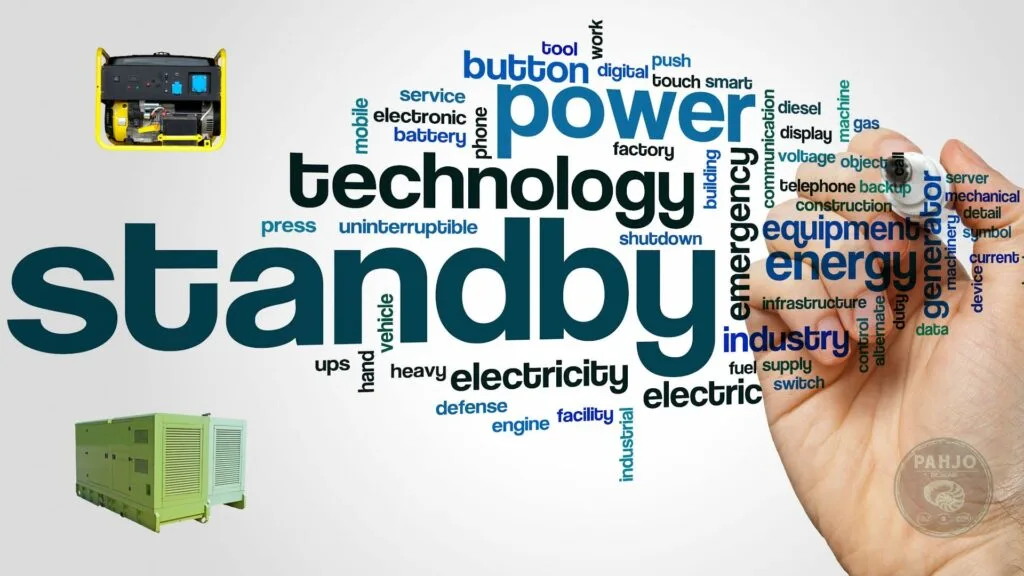
The selection process for determining the best home generators for power outages involved a comprehensive approach with the needs of today’s homeowners top of mind. The generators listed in this article were chosen based on power capacity, run time, fuel type, and distinctive characteristics.
The appropriate home generator can offer standby electricity to keep food fresh, maintain a comfortable home temperature, or power important electronics during prolonged power disruptions.
These generators all boast substantial power capacities, run on gas or propane, or even harnessing solar energy.
Many of them also come equipped with power outlets to power phones, home appliances, and power tools. The selected generators run for a long time with some models functioning for up to 16 hours.
In addition, these home generators come with unique features. For example, some models offer wheels, collapsible handles, weatherproof designs, effortless electric starts, and even WiFi capability for adjustments and monitoring.
Home Generators and Power Outages
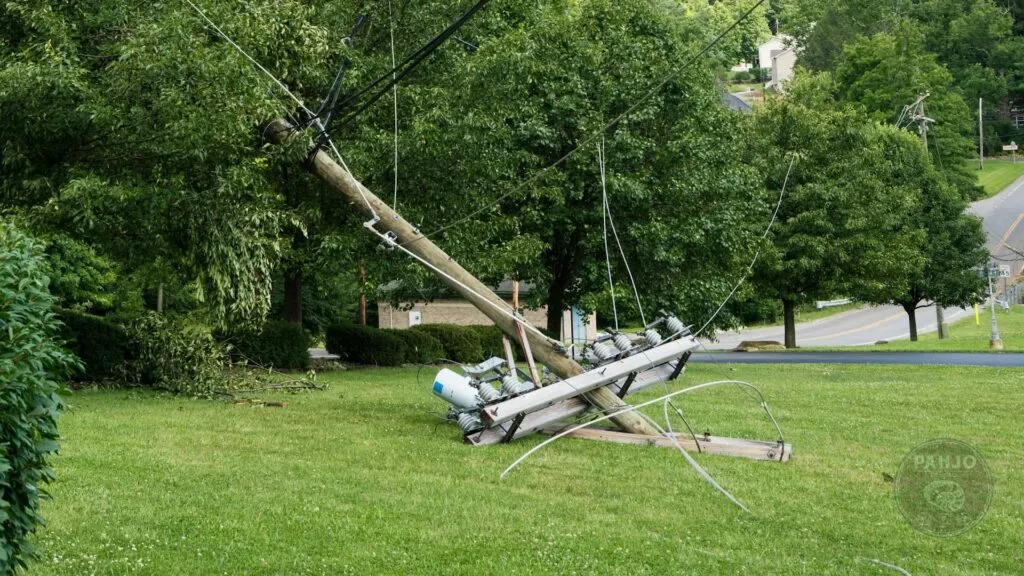
The purpose of a home generator is simple: to provide enough power to your home in case of a power outage.
Home emergency generators come in various types, including portable generators, standby whole house generators, and inverter generators.
Portable Generators
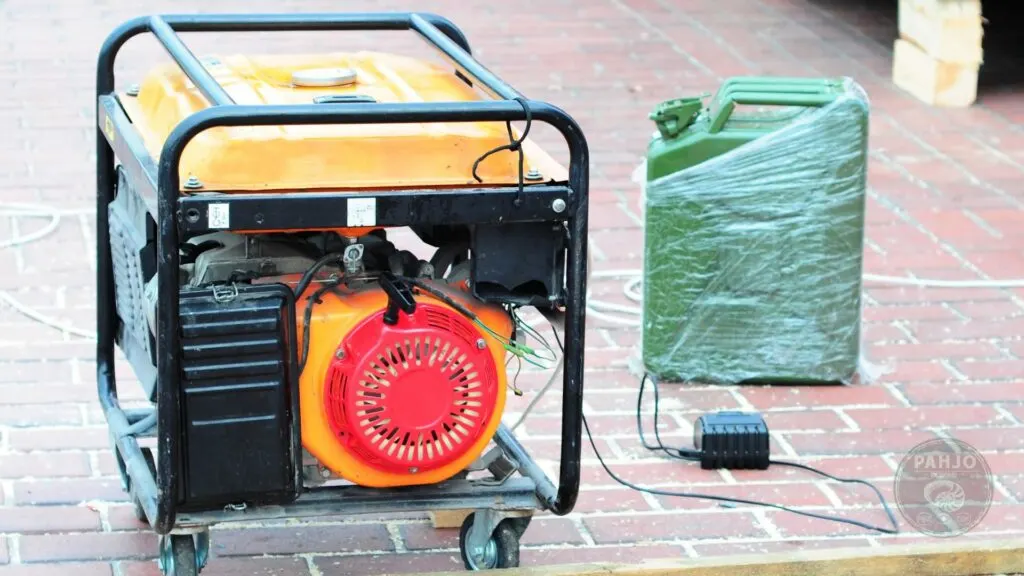
Portable generators are compact, easy to move around, and are perfect for powering essential appliances or areas of your home.
Moreover, some models come with an electric start. Also, the engine speed can be adjusted on many portable models.
These generators are an excellent choice for power outages, especially for those on a tight budget and looking for a great value.
However, they might not provide the amount of power needed to supply electricity to your entire home.
They are commonly used in homes as a portable power station for space heaters, ductless mini splits, or for small appliances. In addition, they work well for construction sites, camping, and other outdoor events.
They can be used to power a sump pump or emergency medical equipment.
Portable Generator Safety
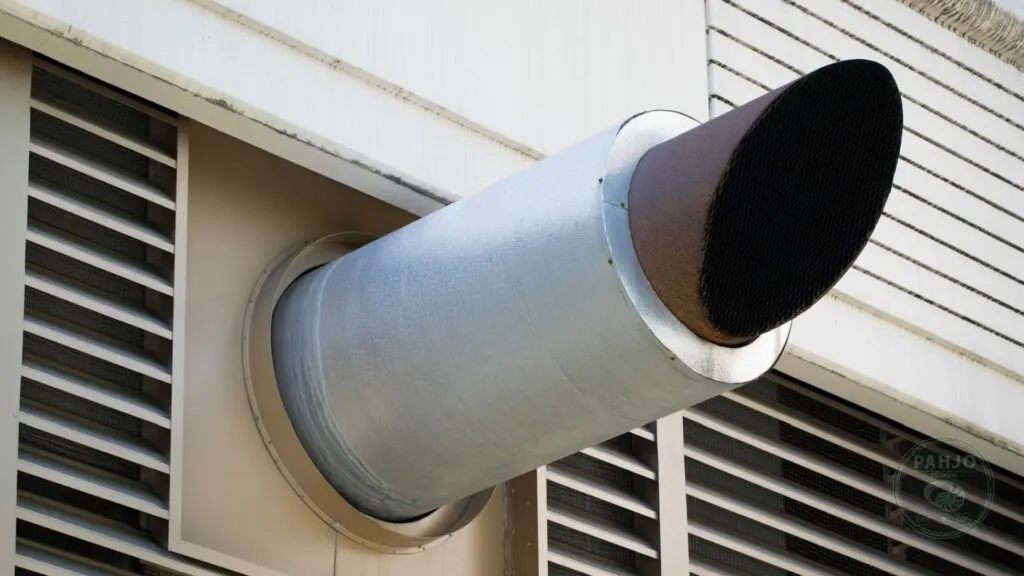
Portable home generators are useful tools to provide backup power during outages, camping trips, or other situations where electrical energy isn’t available. However, their use also comes with potential hazards.
First thing, always operate your home generator outdoors and away from windows, doors, and vents. This prevents carbon monoxide (CO) from accumulating indoors. CO is a colorless, odorless gas. If inhaled, carbon monoxide poisoning can lead to death.
Secondly, avoid overloading your generator. It’s crucial to understand the wattage requirements of the devices you plan to power.
Overloading, or requiring too much power, can cause generator failure or fires. Your generator’s manual should provide specific guidelines on safe load levels.
Furthermore, always use the correct type of fuel as recommended by the generator’s manufacturer.
Improper fuel can cause damage to your generator and pose a fire risk. Also, allow your generator to cool down before refueling to prevent any accidental fires.
Lastly, protect your generator from the elements. If it’s raining or snowing, operate the generator under a canopy-like structure, away from water puddles.
The best way to protect yourself and loved ones while using a generator is to follow the manufacturer’s instructions exactly as written.
Do not create an emergency situation during a power outage.
Standby Generators
Standby generators, also known as whole-house generators, are larger, stationary machines that can provide power to your entire home.
A home backup generator switch on automatically when a power outage occurs. In the event of a power outage, an automatic transfer switch or manual transfer switch activates the generator.
In fact, standby diesel generators are commonly used for critical services such as hospitals and telecommunications industry.
Additionally, they use various fuel types, including natural gas and propane. While they are more reliable and powerful than portable generators, they are also more expensive.
Inverter Generators
Inverter generators are a type of generator designed for producing high-quality, clean electricity.
They work by first producing AC power, then converting it to DC power, and then inverting it back to AC power. This process helps to maintain a consistent flow of electricity, minimizing fluctuations and producing a steady, clean, and reliable power source. similar to the power you receive from the electrical power grid.
Inverter generators are typically more energy-efficient, quieter, and more compact than conventional generators. This makes them an ideal backup power source for camping, tailgating, and other recreational activities.
They provide clean and stable power, perfect for power tools connected via extension cords and sensitive electronic devices like computers and televisions.
Inverter generators make for a good option in highly populated areas due to the low noise. Although they operate more efficiently than traditional generators, they come with a higher price tag.
Solar Generators
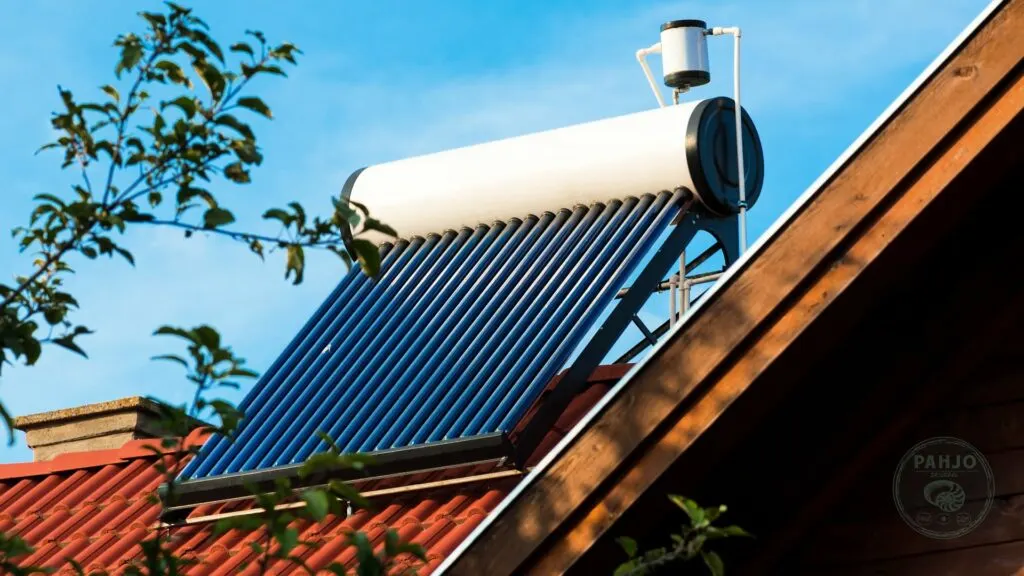
Solar generators harness the power of the sun to generate electricity from solar energy. This renewable energy source is eco-friendly, silent, and require minimal maintenance.
However, their power output may not be sufficient for larger homes or extended emergency power outages, especially during cloudy or rainy days.
They consist of solar panels, a battery, charge controller, and an inverter to produce solar power. The solar panel absorbs sunlight and converts it into electricity. Then, the charge controller regulates the electricity, preventing overcharging or undercharging.
The electricity is stored in the battery and can be used when required. The inverter converts the stored DC power to AC power, which can be used to run household appliances or charge electronic devices. Solar generators are a sustainable and renewable source of power, ideal for outdoor activities or emergencies.
Factors to Consider When Buying Home Generators for Power Outages
Choosing the right home generator involves considering several factors such as electrical power output, type of fuel, size, portability, and cost.
Power Requirements
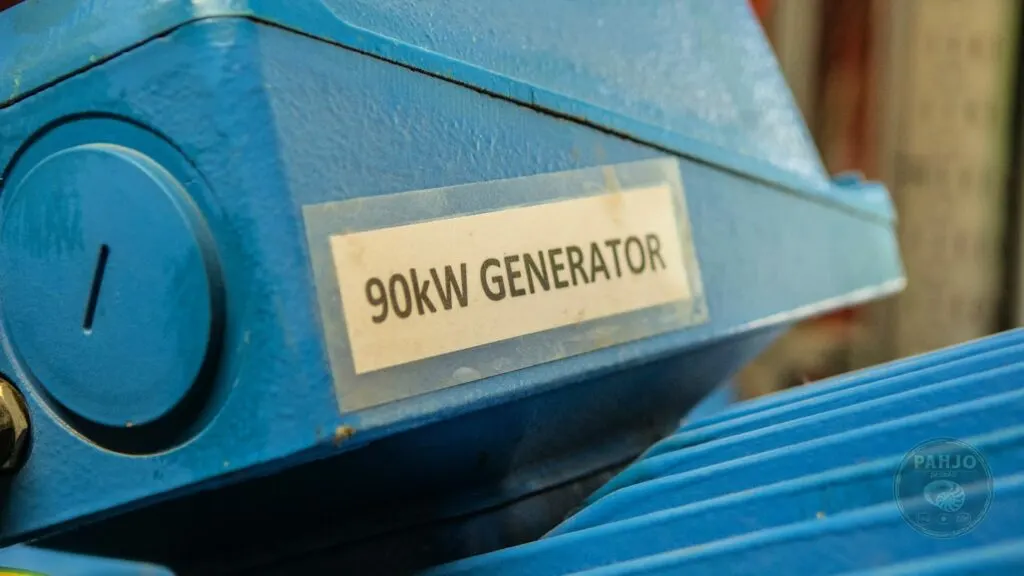
First, determine your power requirements. The average home uses around 7,500 watts of power, so a generator producing 9,000 watts would be sufficient for most homes.
However, if you have multiple heavy appliances like air conditioners or refrigerators, you’ll need a generator with a higher power output.
For instance, if you plan to power only essential appliances like refrigerators, heating systems, and lights, a generator with a power output of around 5,000 to 7,500 watts might suffice.
Conversely, you may need a larger generator capable of producing 20,000 watts or more if you plan to power your entire home including air conditioning systems, electric ovens, and more, .
To determine your power requirements, make a list of all the appliances and systems you want to keep running during a power outage. Then, add up their wattage and choose a generator that can supply at least that amount of power.
Remember to consider both running watts (power needed to keep devices running) and starting watts (extra power needed to start devices).
Fuel Source
Next, consider the fuel source. Gasoline, propane, and natural gas are common fuels for generators.
Gasoline generators are usually less expensive but can be challenging to start in cold weather. Propane and natural gas generators are more efficient and easier to start, but they are generally more expensive.
The fuel type for a home generator largely depends on your specific needs and circumstances. However, propane is often considered the best option due to several reasons.
Propane generators are relatively clean burning, have a long shelf life, and the fuel is widely available. Moreover, they perform well in both high and low temperatures. Natural gas and diesel are also good options, but they might not be as efficient or convenient as propane.
Dual Fuel Generator
A dual-fuel generator has the ability to run on two different types of fuel. Typically, these generators use both gasoline and liquid propane. The dual fuel capability offers flexibility and convenience, allowing the user to choose the fuel source that best suits their needs or is readily available.
Remember, safety and proper storage are crucial no matter what fuel source you choose.
Size and Portability
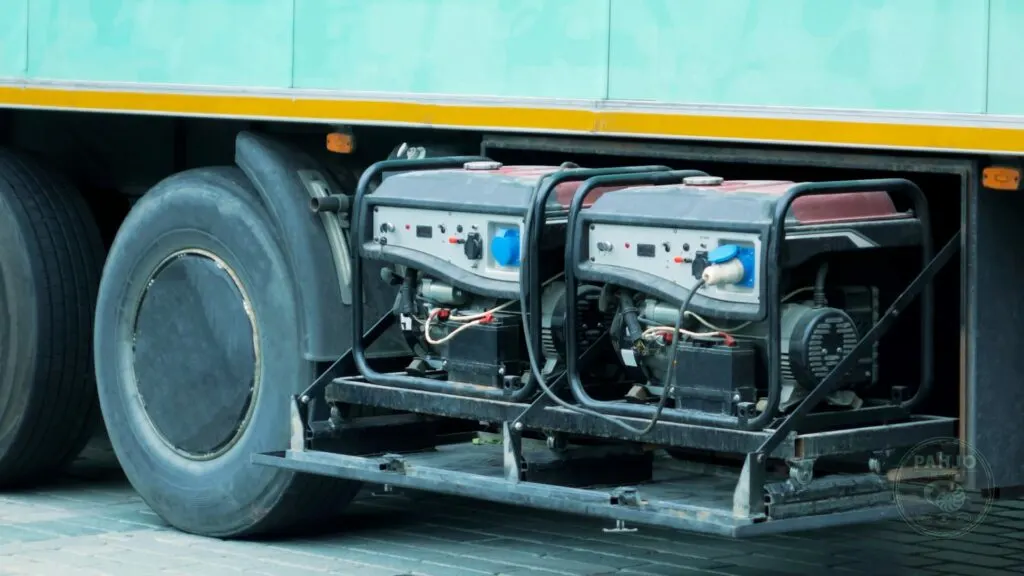
The size and portability of the generator are also important considerations. If you have limited space or need to move the generator around, a compact, portable generator might be a better choice.
On the other hand, if you have a large home and need a powerful generator, a larger, stationary model might be more suitable.
Noise Level
Some generators can be quite loud, which could be a problem, especially in residential areas. Look for a generator with a low noise level, or consider investing in a soundproof enclosure.
Home generator noise levels refer to the amount of sound, measured in decibels (dB), produced by a generator during its operation. These levels can vary based on the size, type, and quality of the generator. Smaller, inverter generators often operate at quieter levels, between 50-60 dB, similar to a conversation at home. Larger, industrial generators can produce noise levels of up to 80-90 dB, similar to a lawnmower or a busy highway. It’s important to consider these noise levels when selecting a generator, as excessive noise can be disruptive and potentially harm hearing over time.
Budget
Finally, consider your budget. Generators can range from a few hundred dollars to several thousand. While it might be tempting to go for the cheapest option, remember that you often get what you pay for. Consider investing in a reputable brand that offers good value for money and has positive customer reviews.
Final Thoughts
In conclusion, the DuroMax XP13000HX Portable Generator stands out as the best overall generator for power outages due to its high power output, versatility, and noise reduction features. For whole-home generators, the Generac Guardian 7043 22kW model tops our list.
Finding the best home generator for power outages is all about understanding your power needs, budget, and priorities.
With the types of generators outlined in this post, you can make an informed decision that keeps your home running smoothly even during the most severe power outages.
Remember, a reliable generator is not just a luxury; it’s an investment in peace of mind.
So, don’t wait until it’s too late as any choice is a good choice.
Equip your home with a robust generator today, and stay prepared for any power disruptions that may come your way.
Related Posts:
- How Often to Change Oil in Home Generator
- What Size Generator to Run a Freezer or Fridge
- DIY Accordion Hurricane Shutters
- How Long Can a Backup Generator Run Continuously
Find answers to frequently asked questions to help you make an informed decisions when choosing a home generator for power outages.
What size generator to run a freezer?
The size generator to run a freezer depends on the power requirements and starting wattage of the freezer.
A typical household freezer consumes around 500 to 800 watts of power, but when it starts up, it may require up to twice that amount for a few seconds.
To be safe, it is recommended to choose a generator with a capacity of at least 1500 to 2000 watts for a freezer.
This will ensure that the generator can handle the starting surge and provide a steady power supply to keep the freezer running.
What size generator do I need for my home during a power outage?
The generator size depends on your power needs. Calculate the total wattage of essential appliances you want to run simultaneously, and choose a generator with a wattage capacity slightly higher than that.
Are portable generators suitable for powering essential appliances during outages?
Yes, portable generators are designed to provide backup power. They can power essential appliances like refrigerators, lights, fans, and electronics, depending on their wattage capacity.
Can a home generator be installed to automatically kick in during power failures?
Yes, standby generators can be installed permanently and connected to your home’s electrical system. They have an automatic transfer switch that detects power outages and starts the generator, ensuring uninterrupted power supply.
What are the key factors to consider when choosing a home generator for long-term use?
Key factors include the generator’s wattage capacity, fuel type (gasoline, propane, or diesel), runtime, noise level, durability, ease of use, and available safety features like overload protection and low-oil shutdown.
Are there any specific maintenance requirements for home generators to ensure their optimal performance during power outages?
Yes, regular maintenance is essential. It includes tasks like checking oil levels, cleaning air filters, inspecting spark plugs, and testing the generator periodically. Refer to the manufacturer’s instructions for a maintenance schedule and guidelines.
